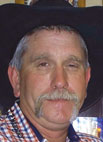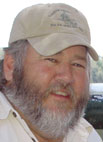Back To How They Were Raised
The youngest of six children, L.C. Ratchford is perpetuating the tradition of his father Odas Ratchford, who started the farm after he returned from World War II in late 1945. The family operation evolved and passed eventually to L.C., when his dad passed away in 1988.
Do-It-Yourself Dairy Farmers
Jared and Anita Munyon are do-it-yourselfers when it comes to their farm. The couple, along with Jared’s parents, John and Linda, run Tri M Valley Farm – a dairy and beef operation near Canehill, Ark.
Arkansas 7 Express
Newt Mitchum’s love for riding horses started when he was only three years old. Since then, his passion has grown into the Arkansas 7 Express, a non-profit riding club that teaches Fort Smith, Ark., area youth the joys of horsemanship.
They’ve Got Rhythm
Ken Douthit has rhythm, and he shows it while caring for his seven-day-old turkey poults. Turkeys are naturally curious animals, which sometimes results in their piling up while looking at something or trying to reach something. This can lead to large death loss. To avoid this, Ken Douthit always pauses to clap and herd the turkey poults back up the rings before he leaves his barns. The poults have been following him questionably to the end of the ring, where they started bunching together, until Ken started his display of rhythm.
From Bull Fightin’ to Clowin’
Kent "Woody" Porter started in the business fighting bulls. “One night me and a guy named Scooter were fighting bulls together. It was a tough show. Scooter split his lip and broke his nose. I broke my hand and something else,” Woody said. “We went to get paid, sitting at the fair waiting for the stockman contractor to come pay us our money. In walked the rodeo clown. He wasn’t even dirty. All happy go lucky. Nothing hurt. The contractor paid us and then paid the clown twice as much. I said I wanted his job. The contactor said, 'Good. You’ve got it next week.' That is how I became a rodeo clown.”
The Cooperation Of Beef and Poultry
Larry and Kathleen Holt, who own K and L Farms in Mount George, Ark., have two successful farming operations that they have decided, complement each other perfectly. On the Holt’s 1,000-acre farm south of Russellville, Ark., they have both a Beefmaster operation and a poultry operation.
A Family of Goats
Tom Nelson was typical of so many young men raised in the Ozarks – always around cattle and wanting to stay on the farm, but yet knowing that a job off the farm would be necessary in order to get by.
Learning From Poultry Experience
It was Albert Einstein who famously said, “The only source of knowledge is experience.” Experience and wisdom are the two words that first come to mind when you meet Gene Pharr of Lincoln, Ark. Gene is steeped in the hands-on knowledge that comes with growing up on a chicken and turkey farm in Lincoln. Gene expanded his experience when he headed to college at the University of Arkansas, where he graduated with his degree in Animal Science in 1975. He started working as a turkey serviceman for the Campbell Soup Company after graduation, where he jokes that he was a bridge across the cultural divide for the company.
The Doctor of Ultrasound
Rethel King runs about 125 head of registered Red Angus on his 120-acre ranch outside Harrison, Ark. They’re all-natural, raised with no hormones. Rethel said that if his calves don’t scan in at “choice,” he doesn’t keep them. Because of the extreme high quality of the cattle that Rethel produces, he is able to sell them directly to a local market at a premium.
Hooked on Sheep
The lambs at Bloomin' Acres call out and crowd around Marilyn Miles when she visits them twice a day on the 70-acre hilltop farm in rural Washington County.











